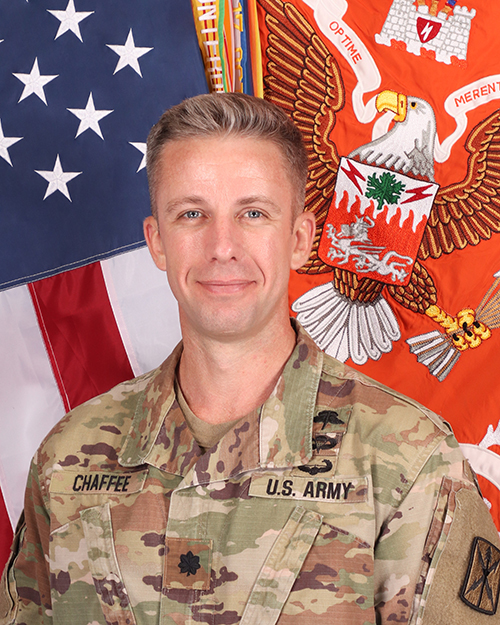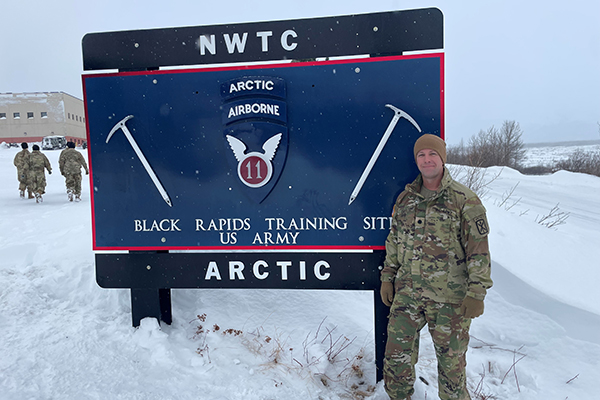By Keith J. Hamel, WPAOG staff
“I had every intent to exit the Army after my initial commitment,” says Colonel Drew Chaffee ’05. “Prior to graduation, I was told that I was seemingly trying top blend into the gray walls of the institution, hoping no one would notice me.” Chaffee’s mindset and focus began to change his first year beyond the “gray walls.” “I worked with exceptional leaders and began applying their teachings to how I led soldiers and soon come to the realization that I loved leading them,” he says. Chaffee’s tipping point came when he became a company commander for a company that was deploying to Afghanistan. “The awesome responsibility of leading soldiers in combat was a key factor in my decision to make a career of the Army,” he says. Nineteen years later, Chaffee has completed battalion command and is serving as the HRC Signal Branch chief.

In those 19 years, Chaffee has had some notable assignments. “My most challenging assignment was serving in the Office of the President of the United States in the White House Communications Agency,” he says. His unit provided communications support to POTUS, and senior White House staff at various locations. “We did this by installing and operating network and radio infrastructure and by managing the White House switchboards, answering thousands of calls a day,” Chaffee says. It was a “no fail mission” so that the president and other White House could execute the duties and responsibilities of the office. Another notable assignment—“by far the most rewarding,” he says—was serving in Special Operations. “The specialized training I received, skillsets I developed, and challenges we conquered in this community were invaluable in subsequent assignments and most importantly shaped my foundational ‘Send me!’ mentality that continues to drive my approach to problem solving today,” says Chaffee.

During his 19 years in the Signal Corps, Chaffee has seen numerous changes to his career management field. “The equipment has continually gotten smaller and faster with a simpler user interface but more complex back-end architecture,” he says. “The Signal Corps continues to innovate new and creative solutions, combining government-issued and commercial off-the-shelf equipment to improve the Army’s ability to fight and win across all domains, including the cyber battlefield.”
When asked about which parts of his 47-month experience have had the greatest impact on his nearly two-decade career, Chaffee calls attention to USMA’s character and physical pillars. “My experience has indicated that I am able to make more and greater progress in my academic and military areas by making good decisions on a daily basis in my character and physical pillars,” he says. “I am proud of the person I have become through my time in service, and I would absolutely do it all again if faced with the same choices.”

